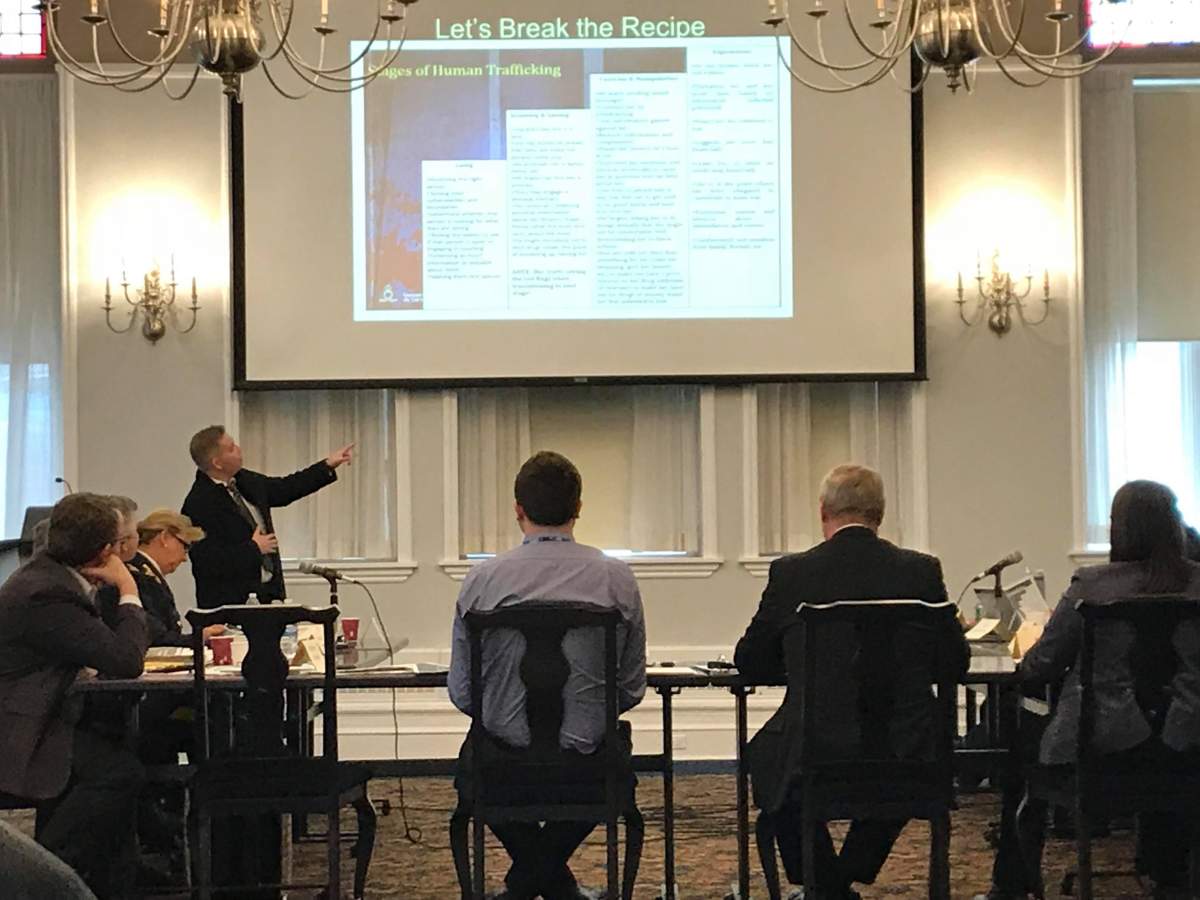The Halifax Police Board of Commissioners were given a brief look into the world of human trafficking on Monday as police briefed them on the trends of the “hidden epidemic” in the province.

RCMP Cpl. David Lane, Nova Scotia’s human trafficking co-ordinator, told officials that human trafficking is an ever-growing problem for police forces in the province and across the country.
According to Lane, it’s estimated that 85 per cent of victims of human trafficking are young women, while 15 per cent are men.
An investigation in the province shows that victims who are recruited in Nova Scotia are often transported to cities like Toronto or Montreal where they are exploited in the sex trade.
“Nova Scotia is not immune to human trafficking,” Lane said. “But it’s still very hard to prove… How do you prove that someone is exerting influence over someone, or exploiting someone?”
READ MORE: Halifax police charge 4 with human trafficking after teen robbed
According to police, Moncton, N.B., is often used as a training ground for those recruited into human trafficking in Nova Scotia, often working out of strip clubs or bars in the region.

Get breaking National news
Lane says human trafficking, or “the game” as it is referred to by the people who take part in it, is called the hidden epidemic because it happens under everyone’s noses.
“Girls are being recruited and moved through the game starting right here in Nova Scotia,” he said.
“It can happen in the hotels you and I stay in, the apartments we live in and we may not know about it.”
The very nature of the crime also makes the victims unlikely to believe that they are victims of crime.
Lane says that one method of recruiting women, a so-called “Romeo pimp,” allows the victim to believe that their pimp loves and cares for them; even as they exploit their bodies for money.
“They are sold a dream of Louis Vuitton bags or high-end condos,” he said.
WATCH: Human Trafficking: The Dark Reality – who are these Johns?

Another technique, also referred to as a “gorilla pimp,” uses fear or physical and psychological violence to keep victims in line.
It’s rare that those who have been exploited decide to come forward and talk with police, said Lane. He estimates that one of every 100 women who are trafficked are willing to talk to police.
Even when they do provide information to police, they are still unwilling to testify in court.
“They want us to know their story so other women can avoid ending up like them,” Lane said.
Lane stressed that this is not just a Halifax problem or a Nova Scotia problem but a countrywide challenge.
“It doesn’t just affect the people who would be considered the most vulnerable, it can be anyone,” he said.
- Shooting at Rhode Island ice rink kills 2 during youth hockey game: police
- Anti-feminist ideology ‘increasingly relevant’ to national security: CSIS
- Savannah Guthrie issues new plea for mother’s return as police clear family
- Tumbler Ridge shooting fuels misinformation about trans people, organization says








Comments
Want to discuss? Please read our Commenting Policy first.